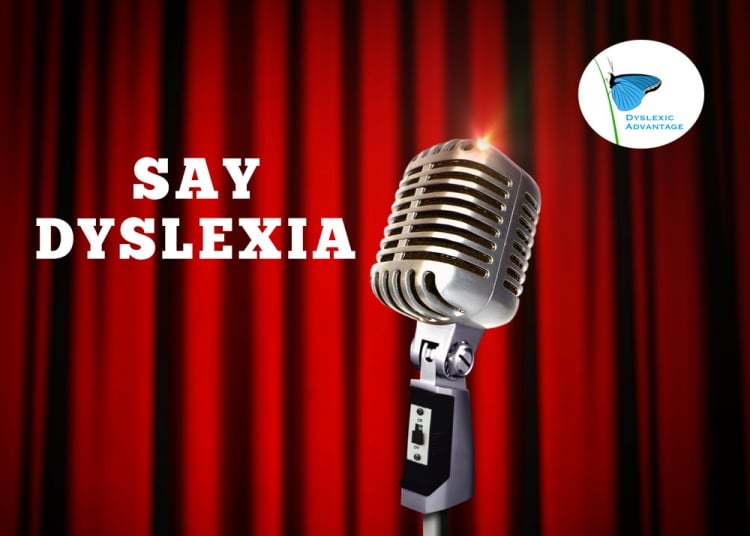It’s a question that arises commonly – does spellchecking for students help or hinder when it comes to students and spelling? The concern is that allowing students to use spellcheck on a regular basis in the long run may prevent them learning correct spellings. Should age matter or the presence of dyslexia? What about working memory overload or ADD/ ADHD? The issue is not a trivial one especially because of recent efforts to The issue is not a trivial one especially because of recent efforts to put laptops away in college during lectures based on computer-based vs. traditional note-taking by hand (N.B. this study did not specifically assess dyslexic students – see the NPR story also below). A recent paper by Hiscox and colleagues (see below) […]
How Dyslexic MIND Strengths Integrate with Multiple Intelligences [Premium]
In our book, The Dyslexic Advantage, we spoke about the 4 MIND strengths common in adult dyslexics: M for Material Reasoning, I for Interdisciplinary Reasoning, N for Narrative Reasoning, and D from Dynamic Reasoning. These skill clusters and talent sets had parallels in brain systems and processes as well as careers, domains of expertise, and areas of innovation. Multiple Intelligences is a concept that was introduced by Howard Gardner of Harvard to identify specific modalities that went beyond a single intelligence or general ability. The seven he initially characterized were: musical-rhythmic, visual-spatial, verbal-linguistic, logical mathematical, bodily, kinesthetic, interpersonal, and intrapersonal. The ones he considered adding later were naturalistic (able to classify natural forms, ecological ‘receptiveness’), existential or spiritual, and teaching -pedagogical in telligence. Somewhat related […]
Teaching Chemistry to Students with Dyslexia [Premium]
Although High School Chemistry is required for many of the top 4 year liberal arts colleges and college Chemistry is a necessary requirement for many majors and careers that many dyslexic students excel in like engineering or medicine, there is a surprising lack of resources available to students having their first encounter with chemistry – and that may make things tricky, especially if they’re also juggling a full load of classes. For Premium subscribers, here are a few tips and strategies for surviving and even thriving at chemistry. Chemistry can be a field that dyslexics do extremely well at because they can visualize, rotating molecules in space, and picture their interactions and energy transformations. The main challenge is often at the beginning – when all the […]
How Herd Aversion Helps Adult Dyslexics [Premium]
“I have herd aversion to the point it’s ridiculous.” – Vince Flynn In our earliest interviews with adult dyslexics in research for our book, a recurring theme of “herd aversion” emerged. Herd aversion or tendency to avoid group think – seems to be a common feature among some of the most innovative and pioneering men and women that we’ve had the pleasure of knowing. Some may point to early childhood experiences of having to “go against the grain” or figure things out on their own, but regardless, as adults, it takes a lot of gutsiness because there can be a lot of messages from the world telling you that they don’t get you or that you’re flat out wrong. Fortunately, there are lots of disciplines […]
[Premium] Sorting Out the Differences Between Dyslexia and ADD / ADHD
On one level, Dyslexia and ADD / ADHD would seem quite different, but in reality, we are only at the beginning of our understanding of how the two might overlap and be different. Both Dyslexia and ADD / ADHD were initially characterized by their negatives – Dyslexia by difficulty learning to read, and ADD / ADHD by difficulty paying attention. Today we know that for both, positive qualities like higher levels of creativity and ability can be associated as well as negatives, and researchers are only now beginning to take a more careful look at what these two designations imply. For those who don’t know, as a group, children with ADD / ADHD score lower on many tests of phonology and reading comprehension, theoretically because of their […]
[Premium] What to Do If a Reading Curriculum Doesn’t Work
It happens to everybody. You research a curriculum thoroughly or it gets through several levels of a review and then you put it into action and… it just doesn’t connect. What do you do? There are several common reasons why a curriculum doesn’t connect with a particular student – and so some trial and error and modification need to take place. The most common reasons that certain curricula fail for a particular student include: 1. Going Too Fast Because there can be difficulty registering information accurately (sounds, letters, words), a student may need to slow the pace down considerably if the lessons aren’t sinking in. It may seem counterintuitive if you feel a student is slipping farther behind, but reducing work and simplifying […]
Critical Review of the Use of Strattera on Healthy Children with Dyslexia
In a controversial paper, Dr. Sally Shaywitz and colleagues at the Yale Center for Dyslexia and Creativity and the Eli Lilly Pharmaceutical Company have authored a paper that examines the effect of the norephinephrine uptake inhibitor Atomoxetine (Strattera) on...
Why It’s Important to Say Dyslexia But Also Support Its Strengths
What is Dyslexia? Dyslexia is a brain-based learning difference with a strong genetic basis. It characterized by unexpected difficulties in fluent reading and specific patterns of difficulty with writing, spelling, and sometimes math as well as strengths in...
Q & A: Can Someone Be Both Dyslexic and Autistic ? [Premium]
QUESTION: Is it Possible to Have Both Dyslexia and Autism? The short answer is yes, but it’s likely not very common and in general many of the features of dyslexia and autism are opposite. By strict criteria, low IQ and autism are excluded from the diagnosis of dyslexia. However, it is not difficult to speculate that a child with family dyslexia could also have autism either through inheritance or through some environmental factor. The main thing to consider is that it may be much more common that a child with dyslexia has social factors unrelated to autism or a child with autism has reading and writing problems unrelated to dyslexia. In fact, typically dyslexic and autistic children have different cognitive, memory, and perceptual patterns although they […]
Why Dyslexics Excel in Real Estate
"When I see a property I can instantly construct a new house on it. I can see exactly how that house is going to look, and I can walk through every room in that house, and out into the garden, and everywhere. I can turn my thoughts into reality...I can do a detailed...
STRONGER Interconnected Retelling of Stories by Dyslexic Children
In a recent study, researchers found that children with dyslexia (2nd-5th graders) had a better ability to discuss links between a text read compared to fellow students who were at the same decoding level. This might be early evidence of the 'big picture' strengths...
[Premium] Examples of Dysgraphia and Dyslexia – What to Look For
After dyslexic students make progress in their ability to decode words, parents, teachers, and students themselves may begin to breathe a sigh of relief; however, another monster challenge may be looming on the horizon – the other D…. Dysgraphia. The National Institutes of Health definition of Dysgraphia includes the following: “Dysgraphia is a neurological disorder characterized by writing disabilities. Specifically, the disorder causes a person’s writing to be distorted or incorrect. In children, the disorder generally emerges when they are first introduced to writing. They make inappropriately sized and spaced letters, or write wrong or misspelled words, despite thorough instruction. Children with the disorder may have other learning disabilities; however, they usually have no social or other academic problems. Cases of dysgraphia in adults generally […]

![Question: Does Note-Taking with Spellcheck Help or Hinder Students with Dyslexia ? [Premium]](https://www.dyslexicadvantage.org/wp-content/uploads/2016/10/Screen-Shot-2019-09-09-at-10.45.17-AM.jpg)
![How Dyslexic MIND Strengths Integrate with Multiple Intelligences [Premium]](https://www.dyslexicadvantage.org/wp-content/uploads/2016/09/our-shutterstock-color-bulb.jpg)
![Teaching Chemistry to Students with Dyslexia [Premium]](https://www.dyslexicadvantage.org/wp-content/uploads/2016/09/Screen-Shot-2019-09-09-at-10.55.40-AM.jpg)
![How Herd Aversion Helps Adult Dyslexics [Premium]](https://www.dyslexicadvantage.org/wp-content/uploads/2016/09/Screen-Shot-2019-09-09-at-10.33.07-AM.jpg)
![[Premium] Sorting Out the Differences Between Dyslexia and ADD / ADHD](https://www.dyslexicadvantage.org/wp-content/uploads/2016/09/dyslexia-adhd.jpg)
![[Premium] What to Do If a Reading Curriculum Doesn’t Work](https://www.dyslexicadvantage.org/wp-content/uploads/2016/09/our-shutterstock-puzzle.jpg)

![Q & A: Can Someone Be Both Dyslexic and Autistic ? [Premium]](https://www.dyslexicadvantage.org/wp-content/uploads/2016/09/dyslexia-autism.jpg)


![[Premium] Examples of Dysgraphia and Dyslexia – What to Look For](https://www.dyslexicadvantage.org/wp-content/uploads/2016/08/dysgraphia-dyslexia.jpg)













